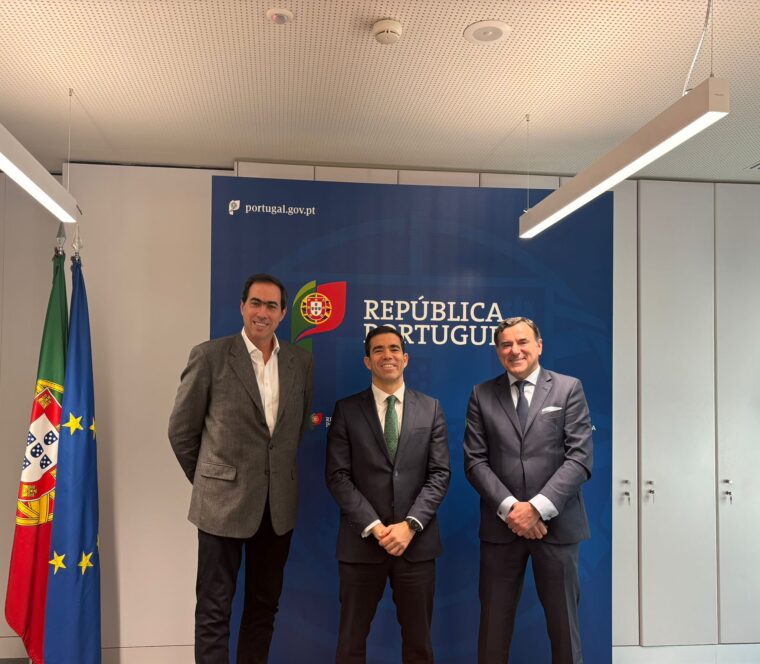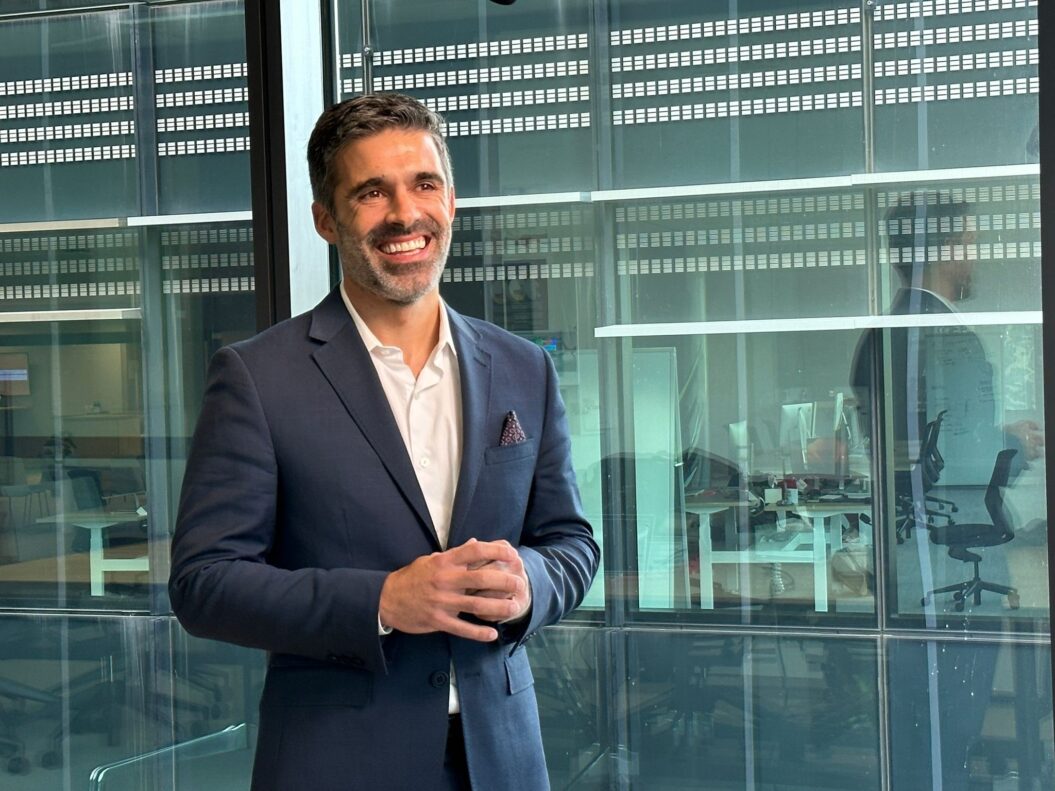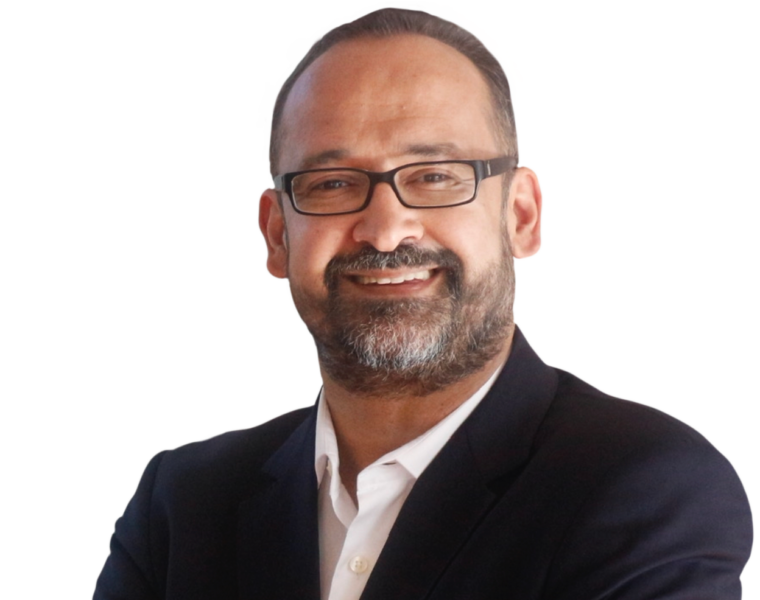As part of the partnership between the Portuguese Diaspora Council and Jornal de Negócios, Bruno Casadinho, Managing Director and Executive Vice President for Engineering in APAC and Middle East at Capgemini, and Counselor of the Oceania Regional Hub, was interviewed by Jornal de Negócios. In the interview, Bruno Casadinho discussed his professional journey and identified competitive opportunities for Portugal, its economy, companies, and entrepreneurs in general.
1 – WHAT LED YOU TO LEAVE PORTUGAL?
It was ambition and curiosity. I always wanted to get to know other cultures and test myself in more demanding environments. The opportunity arose when I started to have international responsibilities and realized that, in order to grow, I had to get out of my comfort zone. It wasn’t just work, it was personal too. Living abroad gives us a perspective that no book teaches. I learned this early on.
2 – WHAT ADVANTAGES OR DISADVANTAGES HAS THE FACT THAT YOU ARE PORTUGUESE BROUGHT YOU?
The biggest advantage? Our ability to adapt. We can empathize and find common ground, even when we are in very different cultures. That helped me a lot in APAC and the Middle East. The disadvantage is that Portugal’s talent is not sufficiently valued on this side of the world, which requires more of us to prove our worth. Another disadvantage is that I rarely get to watch Sporting Clube de Portugal games due to the time difference.
3- WHAT OBSTACLES DID YOU HAVE TO OVERCOME AND HOW DID YOU DO IT?
Although I am living in Australia, my regional role includes working with other Asian countries, such as India, China, Japan, Singapore and others. The biggest challenge was the cultural difference. What works in Japan doesn’t work in India, or in the Middle East. There is no single recipe. I realized this early on and decided to spend a lot of time in the field: listening, observing, noticing habits. I participated in formal meetings, but also in creating personal relationships that would help me integrate. This effort made all the difference. Leading outside forces us to have the humility to learn before acting.
Another challenge that I wasn’t very exposed to before coming to Australia was the huge time difference between Australia, Asia and Europe, which forces me to have a great deal of discipline in the relationship between personal and professional life, as (virtual) meetings after dinner are very frequent. With effort and family support everything is managed, but it is a constant challenge.
4 – WHAT DO YOU MOST ADMIRE ABOUT THE COUNTRY YOU ARE CURRENTLY IN?
There is a huge opening to diversity. Over the years, Australia has welcomed immigrants from all over the world, which has given rise to a multicultural society and a world benchmark in immigration policy. People from all over the world live here, in harmony, which is increasingly rare these days. This diversity is a unique wealth of this country.
A unique aspect of Australia is the geographical dimension – it is an island continent, with different time zones, totally different climate between north, south, centre and coast – which makes people living in Brisbane totally different from people living in Sydney, Melbourne or Perth. Despite all the diversity, and as the locals usually say: “…we are all Australians“.
Finally, nature and landscapes. From red deserts, rainforests, paradisiacal beaches to the largest barrier reef in the world, Australia is one of the most beautiful places I’ve ever been. There is a great pride and respect for the ecosystem – more than 80% of animals and plants do not exist anywhere else in the world. This is the result of a very great effort to preserve the ecosystem.
5 – WHAT DO YOU ADMIRE MOST ABOUT THE COMPANY / ORGANIZATION YOU ARE IN?
What I admire most about Capgemini is how it combines global scale with local proximity. We have about 340,000 people in more than 50 countries, but even so, we manage to maintain a collaborative culture where people feel heard. Another point that I value is the constant commitment to innovation, both in technology and in the way we work with customers. There is a true culture of innovation, where we are challenged to think differently and create solutions that have an impact on customers and people.
6 – WHAT RECOMMENDATIONS DO YOU HAVE FOR PORTUGAL, ITS ENTREPRENEURS AND MANAGERS?
It depends on the sector of activity, but there are 2 fundamental elements in any business in the current context: Digitalization and Talent. All sectors, without exception, are being impacted by digital transformations, transforming products, services and the way of working.
The big difference between business culture in Portugal and outside Portugal is the mind-set. Leaders in Portugal are generally risk-averse and see investment in technology and people as a cost rather than a factor of productivity and competitiveness.
My recommendation is to look for sources of investment inside or outside Portugal, which allow you to change the mind-set, because good ideas do not have nationalities. Qualified investors base their decisions solely on the expectation of return on capital.
7 – IN WHICH SECTORS OF THE COUNTRY WHERE YOU LIVE CAN PORTUGUESE COMPANIES FIND CUSTOMERS?
In Australia, I see opportunities in various industries, namely in Energy and Natural Resources. These are strategic sectors. There is also a lot of investment in the energy transition and sustainability projects. Portuguese companies with innovative solutions can play a relevant role. Another interesting sector is that of digital technologies applied to industry. Those who bring know-how and adapt to local rules have room to grow.
A recent example of success is a project that Critical Manufacturing is developing for Cochlear (HQ in Australia) – this collaboration was initiated due to the quality of Critical Manufacturing’s product vs. other global competitors.
8 – IN WHICH SECTORS IN PORTUGAL COULD COMPANIES IN THE COUNTRY WHERE YOU ARE WANT TO INVEST?
I see enormous potential in sectors related to telecommunications engineering and renewable energy, especially offshore wind and solar, where Portugal already has consolidated experience. There is also growing interest in technologies for decarbonization and electric mobility, areas in which Portugal has innovative companies.
However, Portugal has a challenge of scale, due to the only 5 million people currently active – that said, the only way to create value globally is through digital technologies and there we also have good examples that we can accelerate, namely in the sectors I mentioned earlier.
9 – WHAT IS THE COMPETITIVE ADVANTAGE OF THE COUNTRY YOU ARE IN THAT COULD BE REPLICATED IN PORTUGAL?
Despite its remote location, and huge geographical territory, Australia has a level of digitization of public and private services far above the world average – making the connection between public, private and people very agile and easy. The economic model is focused on the creation of wealth through companies, in which the government (federal and state) is a facilitator and accelerator. Another unique aspect in Australia is its immigration policy: in 3 years, between 2022 and 2025, the population grew by about 4% (1 million people), through the importation of all types of labor – more qualified or less qualified, serving all kinds of needs of the sectors – creating value for companies and giving people a better chance in life, without discrimination.
I believe that Portugal can learn from Australia, with the due cultural, political and geographical differences.
10 – ARE YOU THINKING OF RETURNING TO PORTUGAL? WHY?
Portugal is home. I think about it often… for my wife, we would return to Portugal tomorrow! I think the return will happen naturally once there is the right professional challenge and the motivation of the whole family. I want to take everything I’ve learned and apply it to projects that help the country grow. Whether in a leadership role or supporting strategic initiatives, always focused on helping Portugal.
In the meantime, my focus is to continue to help Portugal as a Counselor of the Portuguese Diaspora.







